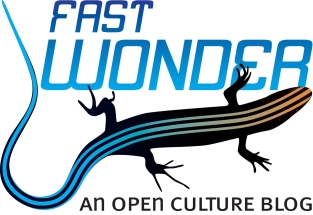Don't forget to sign up for BarCamp, a free tech event right here in Portland on May 11-12! We will also be kicking off the regular DemoCamp event series during BarCamp to highlight tech startup activity in the Portland area. Sign up now, and tell all of your friends!
How can you help promote BarCamp Portland?
 More information about the event:
More information about the event:Tech + Geek + Culture. The event for the Portland tech community, produced BY the Portland tech community.
What is BarCamp? It is an ad-hoc gathering born from the desire for people to share and learn in an open environment. It is an intense event with discussions, demos, and interaction from participants.
BarCamp is a FREE event and the content is determined by the attendees. The event will be hosted at CubeSpace, which has a number of conference rooms for breakout sessions, a large main meeting area, wireless access, easy access to public transportation, bike storage, and ample parking.
We need your help to make BarCamp Portland a fantastic event for the tech community in Portland. Here's what you can do...
1) Forward this email on to people in the Portland area that may have an interest in attending. As we have done little marketing of the event (so far), assume that your local tech social network doesn't know about it yet.
2) If you have not already added yourself to the BarCamp Portland wiki page as an attendee, please do so. This will help us get a more accurate attendance count and plan accordingly (you want food, right?):
http://barcamp.org/BarCampPortland3) Add a session idea for the event. This could be a talk, a demo, a roundtable discussion - whatever! Please add it to the Proposed Sessions section on the wiki page:
http://barcamp.org/BarCampPortland4) Attend the BarCamp Portland Meetup this Thursday (04/26/07) evening 5:30-8pm at Jive Software downtown and have the opportunity to network with the tech community in Portland, and help plan for BarCamp Portland. More details:
http://barcamp.org/BarCampPortlandMeetupsI hope to see you at BarCamp Portland on May 11 & 12 at CubeSpace for a fun tech event!
Thanks to our sponsors (below) for making this event possible!
Monthly
BarCampPortland Meetup Location and Beer:
Jive SoftwareFacilities:
CubeSpaceFacilities (Added Costs):
AboutUs,
VirtuousMaterials:
Lumeno.usBadges:
JanRainT-Shirts:
Portland Development CommissionLogo Design:
Lov.liPodcasting coverage of the event:
SplashCastFriday Dinner: SPONSOR NEEDED
Friday Night Reception: SPONSOR NEEDED
Saturday Breakfast:
IovationSaturday Lunch:
ISITE DesignSaturday Dinner:
MicrosoftSaturday Night Reception: SPONSOR NEEDED
Saturday Afternoon Tea (Bubble Tea):
Portland Perl Mongers





